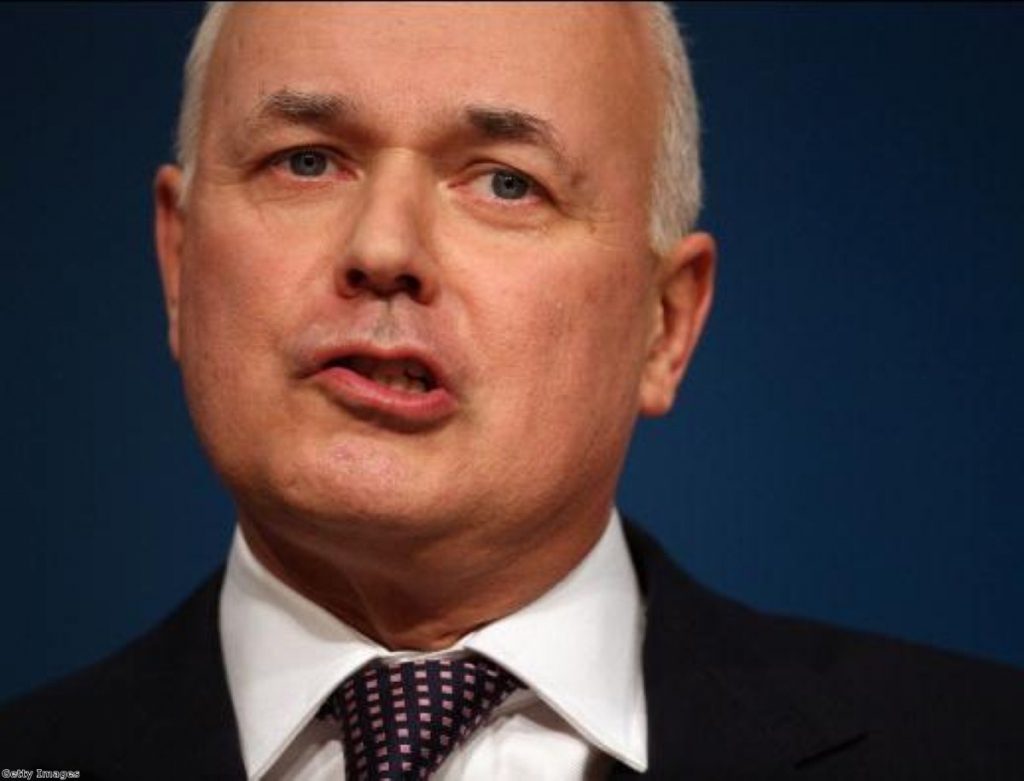An act of faith? IDS ‘believes’ benefit cap will force workshy to find jobs
Iain Duncan Smith placed his political credibility on the line this morning, as the coalition's benefit cap finally comes into force across the country.
The work and pensions secretary insisted the move, preventing those claiming benefits from receiving more than average earnings, would prompt claimants to look for work and save taxpayers £110 million a year.
Duncan Smith had been criticised by the Office for National Statistics (ONS) for suggesting in May that 8,000 people who would have been affected had already found jobs because of his reforms.
"This clearly demonstrates that the cap is having the desired impact," a Department for Work and Pensions (DWP) press release quoted him as saying. The ONS dismissed the claim as "unsupported".


Speaking on the Today programme, Duncan Smith repeatedly said he believed the introduction of the benefit cap would make a real difference.
"My claim is I believe we are right that what we say is people who were notified of the cap…. are going to seek work where they did not seek work before," he said.
From today couples in England, Scotland and Wales will receive no more than £500 a month, whether they have children or not. Single claimants will see their benefits capped at £350 a month.
The benefit cap is set to be popular with voters. Research by Ipsos Mori shows three-quarters support the cap, while 50% think the UK's welfare spending is too big.
Labour pointed out 4,000 families would continue to receive over £26,000 because ministers can only dock housing benefit, however.
The opposition is focusing its criticisms on the government's competence rather than the principle itself, which shadow work and pensions secretary Liam Byrne said was a "good idea".
"The government needs to go back to the drawing board, design a cap without holes and put a two year limit on the time you can spend on the dole, like Labour's compulsory jobs guarantee," he said.
"Every time this government brings out a new scheme it falls apart… that's why the welfare revolution we were promised is crumbling and the benefits bill is soaring £20 billion higher than planned."
The growth in spending on welfare over recent years – partly a result of the economy's disappointing performance – has made it harder for the coalition to achieve its deficit reduction aims.
Departmental spending cuts have been partly offset by a rising benefits bill which now means £1 in every £3 of taxpayers' money is spent on benefits.
A number of benefits are exempted from the cap, including the disability living allowance.
Today sees the national rollout of the cap, which had been piloted in the London boroughs of Haringey, Enfield, Croydon and Bromley since April.
Analysis from the charity Gingerbread suggested nearly half of the households affected would be single parents on income support.
High rents in areas where there is a shortage of affordable housing will push many single-parent families over the cap threshold, it warned.
"Single parents struggling to make ends meet are taking the brunt of the government's failure to address the underlying cause of housing benefit rises: the shortage of affordable housing," chief executive Fiona Weir commented.
"This is a deeply divisive policy which plays on myths and stigma about benefits. Far from creating fairness, it will worsen division and disadvantage."
A report out today from the Resolution Foundation think-tank has claimed even a modest rental home is out of the reach of poorer familiesin one-third of Britain.
It found a couple with one child earning £22,000 net a year would struggle to find anywhere which did not cost more than 35% of their income.
And families with a net household income of £19,000 would find half of the UK's rental market for two-bedroom homes unaffordable.
"Families could face the stark choice of cutting back on essentials or having to move away long distances from their support networks to look for cheaper places to live," the National Housing Federation's director Ruth Davison warned.

